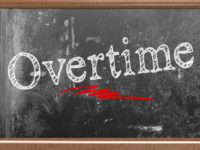For many, buying a business is a lifelong dream. And while this can be an incredibly exciting time, it is also a time that requires careful planning and the need to cultivate a complete understanding of the legal requirements of a successful purchase. When purchasing any business you must proceed through four very important steps which, if not properly navigated, could easily fall through, leaving you disappointed. Hence, why it is highly recommended you engage the services of a solicitor who specialises in the purchase of businesses.
1. Contract review
Once you have completed the process of negotiating the terms of the purchase of the business, it will be time to put those terms into contract form. This stage is critical because oftentimes this is where small misunderstandings and miscommunications reveal themselves. In addition, this is the stage where any forgotten details can still be reviewed and included. It is imperative you complete the following steps:
- Read the contract carefully; make sure the key items are consistent with the terms agreed upon ie: sale price, date of finalised sale, inventory and equipment included in the sale.
- Review waivers, time frames and liability issues; read the terms pertaining to these legalities and suggest changes and/or adjustments to the language defining each parties’ legal responsibilities.
2. Contract amendments and negotiations
After having carefully read the contract, it is time to review those areas that need to be discussed and possibly negotiated. This is your opportunity to clarify and change any details that may have been overlooked during the larger negotiation process. These specifics can include;
- Changing waiver language.
- Adjusting time frames to meet realistic expectations.
- Reviewing specifics regarding liability issues.
- Detailing inventory and equipment exchanges.
- Defining responsibilities of both the buyer and the seller.
3. Lease documentation review
At this stage, you will need to determine if you will be taking over the current lease or entering into a new lease. Either instance will require that you review the lease document you will be signing. It is important to review all of the lease details including;
- All costs associated with the lease.
- Correct description of the space you will be leasing.
- Time frame of the lease.
- Obligations for maintenance of the property during the course of the lease.
- Subleasing restrictions.
4. Contract exchange and settlement
After having carefully negotiated and memorialised your agreement, it is time to sign your contract. You will do this in the presence of your solicitor to allow you to review the final document and ask any last-minute questions before signing. Once you have signed the contract will be forwarded to the other party for the same final review process. After all signatures have been affixed the sale is final and the last step of implementing the contract can begin.
The settlement will then proceed over the next few weeks. During the settlement process you will be instructed to;
- Prepare your financing for the outstanding monies due and owing.
- Await the vendor transfer of assets and inventory to your business name.
- Receive vendor prepared requisitions to answer any outstanding questions about the business.
- Make necessary adjustments to address employee issues such as new offers of employment or final paychecks.
- Receipt of any promised clients lists or vendor information for supplies and services.
While this may seem like a daunting process, it does not have to be. If you begin the process with a full understanding of the steps that must be completed for a successful purchase and surround yourself with those who have an expertise in the area of the sale and purchase of a business, you will find that the process can go very smoothly.
Rolf Howard, Managing Partner, Owen Hodge Lawyers
















